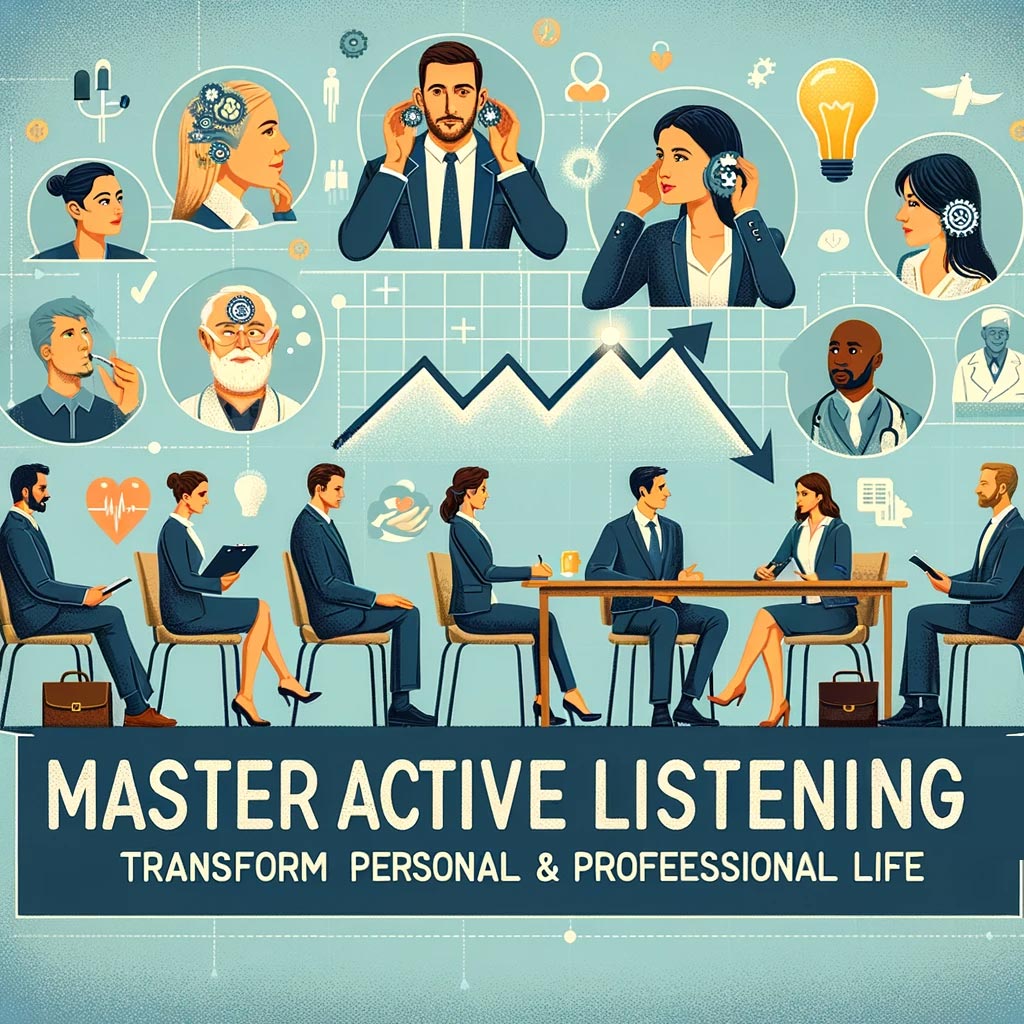
Student Success: 10 Proven Strategies for Academic Excellence
Introduction
Are you struggling to stay motivated and perform at your best in school? You're not alone. Many students face challenges managing time, studying effectively, and achieving academic goals.
The good news is that you can use proven, research-based strategies to reach your full potential and start thriving in the classroom.
In this comprehensive guide, you'll discover ten proven methods to boost your academic achievement. From optimizing your study environment to mastering effective learning techniques, we'll cover a step-by-step roadmap to help you succeed.
Whether you're a high school student looking to improve your grades or a college learner aiming for that coveted 4.0 GPA, these strategies will boost you to reach new heights of academic excellence.
So, let's dive in and explore the secrets behind student success. Get ready to transform how you approach your studies and watch your performance skyrocket.

The importance of a structured study routine
One of the hallmarks of successful students is their ability to maintain a consistent study routine. A recent study found that 78% of high-achieving students report having a structured schedule for their academic work. But why is a routine so crucial for educational success?
Well, when you establish a regular study pattern, you're improving your time management skills and training your brain to be more focused and productive. Imagine your mind as a muscle—the more you exercise it through consistent practice, the stronger and more efficient it becomes.
By setting aside dedicated study time each day, you'll find it easier to stay on top of your coursework, retain information more effectively, and minimize the stress that often comes with last-minute cramming. Plus, a routine helps you develop essential self-discipline, a trait that will serve you well in school and throughout your life.
So, if you're serious about improving your academic performance, start by creating a structured study schedule that fits your unique needs and lifestyle. Stay consistent with your routine, even on low-motivation days.
Creating the Ideal Study Environment

Did you know that the physical environment you study in can positively impact your academic performance? Research shows that environmental factors account for up to 25% of a student's success in the classroom.
Think about it:
if your study space is cluttered, dimly lit, and filled with distractions, it will be harder to focus and retain information. On the other hand, an organized, well-designed study area can help you feel more motivated, engaged, and productive.
So, what are the key elements of an effective study environment? Let's take a closer look:
Minimizing Distractions:
One of the biggest enemies of concentration is a lack of it. That's why it's crucial to eliminate as many distractions as possible from your study space.
This means turning your device off, closing unnecessary browser tabs, and settling into a quiet, undisturbed area to concentrate on your tasks.
Proper Lighting and Ventilation:
Adequate lighting and airflow can positively impact your energy levels and cognitive function. Aim for a well-lit, airy space that allows you to feel refreshed and alert during your study sessions.
Comfortable Seating and Desk Setup:
Ergonomics are vital to your overall productivity. Make sure your desk and chair are set up to support good posture and minimize physical discomfort.
Personalized Touches: Feel free to add personal elements to your study space, such as inspirational quotes, family photos, or even a tiny plant. These small touches can help you feel more motivated and connected to your work.
Designing a space that aligns with your unique needs and preferences can pave the way for academic success. Remember, the proper study space can make all the difference in your ability to focus, retain information, and perform at your best.
Mastering Active Learning Techniques

When it comes to effective studying, many students fall into the trap of passive review—simply reading through their notes or textbooks without genuinely engaging with the material. While this approach may seem efficient, it's actually one of the least effective ways to learn and retain information.
Instead, research shows that active learning techniques, which involve actively processing and applying information, can significantly improve academic performance. Studies have found that active recall strategies can boost retention by as much as 50%.
How can you use the best active learning methods to study? Let's take a look:
Retrieval Practice:
This involves actively recalling information from memory rather than simply re-reading or re-watching the material. Try covering up your notes and attempting to write out or explain the key concepts from memory.
Spaced Repetition:
This method involves reviewing information in shorter, more frequent sessions rather than cramming it all in simultaneously. It helps solidify the information in your long-term memory.
Elaboration and Explanation:
Instead of passively reading through your notes, try explaining the concepts aloud or in writing. This deeper level of processing can help cement your understanding.
Integrating these active learning techniques into your study routine will improve your ability to retain information and develop a deeper, more nuanced understanding of the material. This, in turn, will translate to better grades, increased confidence, and a more rewarding academic experience overall.
Optimizing Your Time Management

One of the biggest challenges students face is managing their time effectively. With classes, extracurricular activities, social commitments, and personal responsibilities, it can be too simple to feel overwhelmed and need help staying on top of your academic work.
However, you can control your schedule and maximize productivity by implementing proven time management strategies. Here are some tips to help you get started:
Prioritize Your Tasks:
Start by preparing a list of all your upcoming assignments, projects, and deadlines. Then, use the Eisenhower Matrix or a similar prioritization system to identify the most critical and urgent tasks and focus your efforts accordingly.
Utilize the Pomodoro Technique:
This time management technique involves working in focused 25-minute intervals, followed by short breaks. This can help you focus on concentration and avoid burnout.
Minimize Multitasking:
While it may seem like you're being productive, switching between multiple tasks can decrease your efficiency and cognitive performance. Instead, try to focus on one thing at a time.
Schedule Regular Breaks:
It's important to take periodic breaks throughout your study sessions to recharge and refresh your mind. Even a 5- or 10-minute break can improve your ability to stay focused and engaged.
By learning these time management strategies, you can tackle your academic workload more efficiently and less stress. Remember, effective time management takes practice, so be patient with yourself as you work to develop these habits.
Leveraging Support Systems for Success
As you navigate the challenges of academic life, it's important to remember that you don't have to go it alone. Surrounding yourself with a robust support system can be a game-changer in achieving your goals.
What exactly do we mean by a "support system"? It can take many forms, from study groups and tutoring services to faculty mentors and family involvement. Let's explore some of the key ways you can leverage these resources to boost your academic performance:
Peer Study Groups:
Collaborating with classmates can be a valuable way to deepen your understanding of course material. Discussing concepts, sharing insights, and quizzing each other can reinforce your learning and give you new perspectives.
Tutoring and Academic Coaching:
If you're struggling with a particular subject or skill, don't hesitate to seek out professional help. Many schools and universities offer tutoring services or academic coaching programs that can provide personalized guidance and support.
Faculty Mentorship:
Building relationships with your professors can be enriching, both academically and personally. Reach out to instructors whose work or teaching style resonates with you and ask if they'd be willing to serve as a mentor.
Family Involvement:
Your family can be a powerful source of encouragement and accountability. Share your academic goals with them, and enlist their support to help you stay on track.
By tapping into these various support systems, you'll improve your chances of academic success and develop essential skills like communication, collaboration, and self-advocacy—all of which will serve you well both in and out of the classroom.
Developing Healthy Habits for Sustained Performance

As a student, it's easy to get caught up in the hustle and bustle of academic life, often at the expense of your overall well-being. However, research shows that maintaining a healthy lifestyle can positively impact your ability to perform at your best.
Think about it: when you're well-rested, nourished, and physically active, your brain is better equipped to focus, retain information, and problem-solve. On the other hand, neglecting your basic needs can lead to fatigue, brain fog, and a general sense of burnout.
So, what are some of the vital, healthy habits you should cultivate to support your academic success? Let's take a closer look:
Consistent Sleep Patterns:
It aims for 7-9 hours of sound sleep each night. A regular sleep schedule can improve your energy levels, cognitive function, and overall mood.
Balanced Nutrition:
Fuel your body with a diet rich in whole, nutrient-dense foods. This will help you maintain significant energy levels and support optimal brain function.
Regular Exercise: Even just 30 minutes of physical activity per day can boost your mood, reduce stress, and improve your ability to focus.
Stress Management Techniques: Search for healthy ways to manage the inevitable stresses of student life, such as journaling, meditation, or engaging in hobbies you enjoy.
By prioritizing physical and mental well-being, you'll improve your academic performance and set yourself up for long-term success and fulfillment.
Cultivating a Growth Mindset

A growth mindset is one of a student's most valuable tools. It’s the belief that skills and intelligence can be improved through hard work, dedication, and learning from errors.
In contrast, a fixed mindset, which holds that your talents and skills are set in stone, can significantly hinder academic achievement. When faced with challenges or setbacks, anyone with a fixed mindset is likelier to give up or avoid taking risks, fearing that they'll be exposed as "not good enough."
On the other hand, students with a positive mindset embrace challenges as opportunities for growth and improvement.
They view failures as valuable opportunities for growth and are more likely to keep going when faced with challenges.
So, how can you develop a growth mindset and use it to enhance your academic journey? Here are a few strategies to consider:
Reframe Your Mindset:
When encountering a setback, try shifting your perspective from "I can't do this" to "I can't do this yet." This small but powerful change in language can help you stay motivated and focused on improvement.
Celebrate Small Wins:
Recognize and celebrate your progress, no matter how small. This will keep you motivated and focused on the process, not just the outcome.
Embrace Challenges:
Rather than avoiding challenging tasks or subjects, embrace them. See them as opportunities to enhance your skills and broaden your understanding.
Remember, developing a growth mindset is a lifelong journey, not a one-time fix. However, by consistently applying these strategies, you'll see a profound shift in your academic performance, confidence, and resilience.
Conclusion
There are ten proven strategies to help you achieve academic excellence. From establishing a structured study routine to cultivating a growth mindset, these research-backed techniques will boost you to use your full potential and reach new heights of success.
Consistency, dedication, and a willingness to adapt these strategies to your needs and learning style are essential to using them effectively. Don't be afraid to experiment and find what works best for you.
So, what are you waiting for?
Implement these strategies today and watch your grades, confidence, and overall academic experience transform. The path to student success is within your reach; you only have to take the first step.
FAQ
What are the most effective study techniques?
Some of the most effective study techniques include retrieval practice, spaced repetition, and elaboration. These active learning strategies have been shown to improve information retention and understanding significantly.
How many hours should students study per day?
The optimal amount of study time can vary depending on the individual, their course load, and their learning style. However, research suggests that most successful students spend 2–4 hours daily engaged in focused study and review.
What habits do successful students have in common?
Successful students often share habits like maintaining a structured study routine, creating a distraction-free study environment, managing their time effectively, and prioritizing their physical and mental well-being.
How can I focus my concentration while studying?
To improve your concentration, try implementing strategies like the Pomodoro Technique, minimizing multitasking, and taking regular breaks. Additionally, ensuring that your study space is optimized for focus can make a significant difference.
What's the best study environment for academic success?
The ideal study environment minimizes distractions, provides proper lighting and ventilation, and offers comfortable seating and desk setup. Personalized touches can also help you feel more motivated and engaged.


